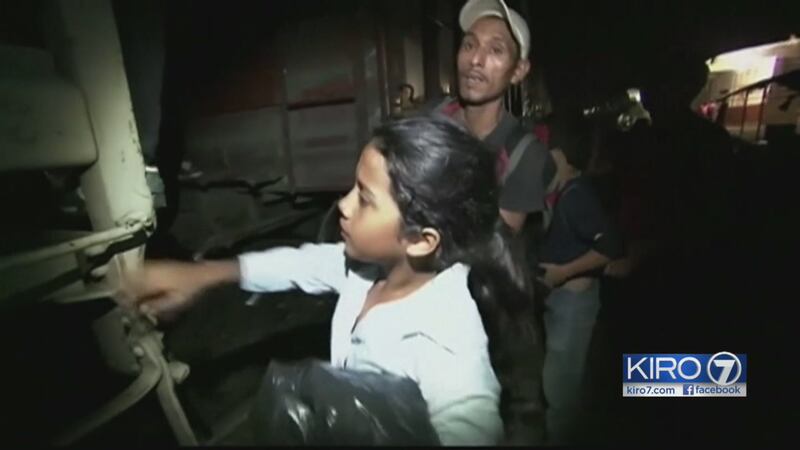A comment made by an immigration judge during a hearing over a lawsuit filed in Seattle has sent shock waves across the country.
Can a 3-year-old child represent himself in court?
One judge says yes.
%
%
Many undocumented children who walk into the immigration courthouse in downtown Seattle don't have an attorney and must represent themselves.
"There are children from 2 years old to 17 years old, who are appearing by themselves, who are sitting there without a clue about what's happening," said Matt Adams, legal director of the Northwest Immigrant Rights Project in Seattle.
"Our constitution guarantees that every person, it doesn't matter what their legal status is, every person gets to have a fair hearing," said Adams.
The Northwest Immigrant Rights Project filed a class action lawsuit against the federal government two years ago demanding children be offered public defenders, which are not provided in immigration proceedings.
Adams says a child represented by an attorney is three to four times more likely to win their case.
“They’re up against a trained federal prosecutor,” said Adams. "You do not have the capacity to represent yourself, to defend yourself and explain under which laws you might qualify to remain in this country."
A child will not know their legal right to cross examination.
In a sworn deposition, Assistant Chief Immigration Judge Jack Weil, of Virginia, repeatedly said a child can adequately act as their own attorney.
"So we said what about a 3 or a 4 year old?” said Adams. “And he said, 'I've taught a 3 and 4 year olds immigration law.' Now it can take a lot of time, but it's doable."
%
%
Adams says Weil was chosen by the federal government and was provided with a list of topics ahead of time.
"What's so outrageous about this, this is the man who's responsible for training all of the immigration judges to ensure the children that appear before them receive a fair hearing,” he said.
Latino Advocacy, in Bellingham, said they've heard of similar cases around the nation.
"It really tells you that this child's well-being is not a top priority for this judge,” a spokeswoman said. “Therefore, nobody’s well-being is top priority for this judge. Therefore, the whole immigration system is not set to take into consideration people’s well-being.”
When asked to respond to people’s staunch belief that, child or not, they should not be in the country in the first place and allowed a taxpayer funded attorney, Adams said: “First of all, it's wrong to say they don't have the right. That's putting the cart ahead of the horse. That hasn’t been decided yet, and many of them have the right to remain in this country. Many are fleeing torture, abuse and so what we’ve said is they need attorneys to get a fair trial.”
KIRO 7 called Weil.
His office referred KIRO 7 to a spokeswoman for the Department of Justice’s Office for Immigration Review.
In a statement, the spokeswoman said:
The assistant chief immigration judge was speaking in a personal capacity when he made that statement [regarding 3-year-old's able to represent themselves.] The assistant chief immigration judge's statement does not necessarily represent the views of the Department of Justice.
The department has taken a number of measures to increase access to counsel for individuals facing removal proceedings, and for children, in particular.
For example, in 2014, the Justice Department and the Corporation for National and Community Service announced justice AmeriCorps, a strategic partnership, now in its second year, to enhance the effective and efficient adjudication of immigration proceedings involving certain unaccompanied children.
The next hearing at U.S. District Court in Seattle is March 24.
A judge will consider whether the case will focus on the handful of plaintiffs in the class-action lawsuit or if the ruling could apply to undocumented children across the nation.
This case could go to trial in September.
Cox Media Group








